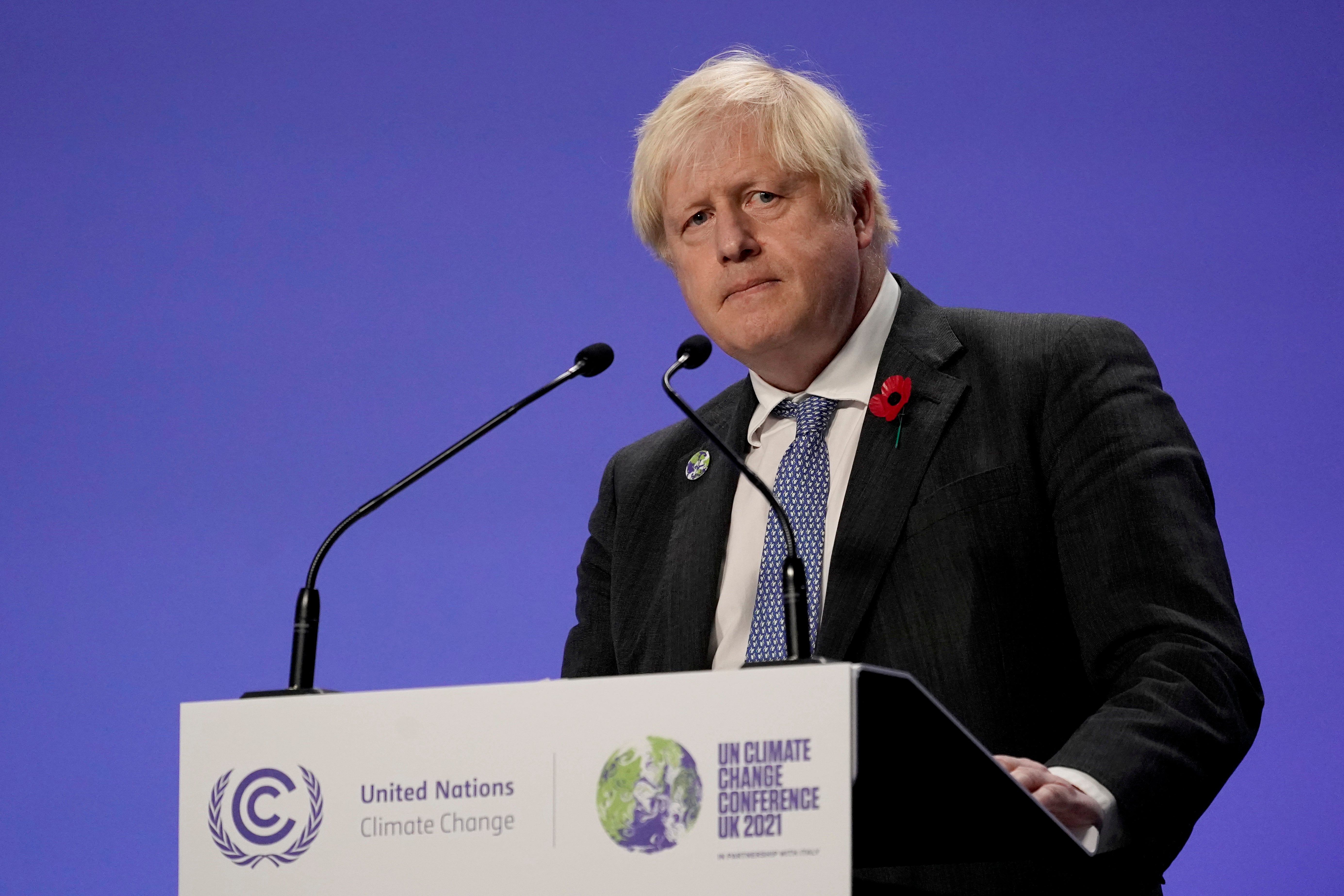The chances of success at Cop26 are diminishing – and Boris Johnson knows it
Editorial: The thing that has been missing in Glasgow isn’t Boris Johnson, Vladimir Putin or even President Xi, but a sense of urgency

The notion that the survival of life on Earth depends on Boris Johnson is not a comfortable one, and it might even frighten the prime minister himself.
The chances of success at Cop26 appear to be receding. The published draft agreement is underwhelming, fatally compromised by the reluctance of powers such as China, Russia, India and Saudi Arabia to do the right thing, as well as the likes of Toyota and Volkswagen declining to sign up to a truly ambitious vehicle electrification programme.
The respected Climate Action Tracker says the world is on course for global warming of 2.4C over pre-industrial levels – catastrophic in its own right and triggering unpredictable and even worse consequences by the end of the century. It’s not looking good for anyone.
Hence the prime ministerial whistle-stop visit. There’s no doubt Mr Johnson wants the conference to be a success, or spun as such. If it is, then so much to the good, and he’ll deserve praise for his efforts. However, he also knows only too well that a Cop flop is also possible, and he has to show that he strained every sinew to avoid that calamity.
Already beleaguered, what would his critics say if he just hung around in Downing Street and allowed summit president Alok Sharma to preside serenely over a genteel disaster? He may be arrogant, but Mr Johnson does care about this issue. His passion no doubt encouraged by his green-inclined wife. In any case, he needs to be able to turn around and say “it wasn’t my fault”, should the need arise. It is climate diplomacy practised as a domestic political insurance policy.
Sensing impending doom for what passes as his reputation as an international statesman, as well the planet, the prime minister thus sped to Glasgow to spur the gathered international delegates, scientists and industrialists on to further progress.
According to the prime minister “1.5[C] is in the balance”, but needs a few more phone calls from the great capital cities of the world to the negotiators in Glasgow. He didn’t, wisely, deploy his usual boosterish repertoire of puns or crack any lame gags involving muppets or “blah, blah, blah”.
Ominously too, he avoided his slogan about coal, cars, cash and trees, lest anyone be reminded to do a quick audit of progress under each heading. He did, though, talk about the Cop27 in Egypt next year – a virtual admission of defeat – before he got the train back to London.
To keep up to speed with all the latest opinions and comment sign up to our free weekly Voices Dispatches newsletter by clicking here
As things stand, even this draft agreement, inadequate as it is, could be weakened further. The dangers are on both sides of the debate – greenhouse gas producers and those countries most at risk of devastation.
The key reference to phasing out fossil fuels, for example, could be weakened, while the commitments to mitigate and adapt to the already inevitable aspects of climate change are also being questioned by small island states. All too often, it seems, these negotiations are conducted in much the same way as, say, international trade talks or efforts to limit nuclear proliferation – horse trading, lobbying and compromises based on national interests.
This is entirely inappropriate, given the unknown consequences that will hit every nation, rich and poor, north or south, because, as we increasingly see, nature is bigger and more powerful than humankind. The thing that has been missing in Glasgow isn’t Boris Johnson, Vladimir Putin or even President Xi, but a sense of urgency. There’s no reason to believe it will be discovered next time, either.



Join our commenting forum
Join thought-provoking conversations, follow other Independent readers and see their replies
Comments